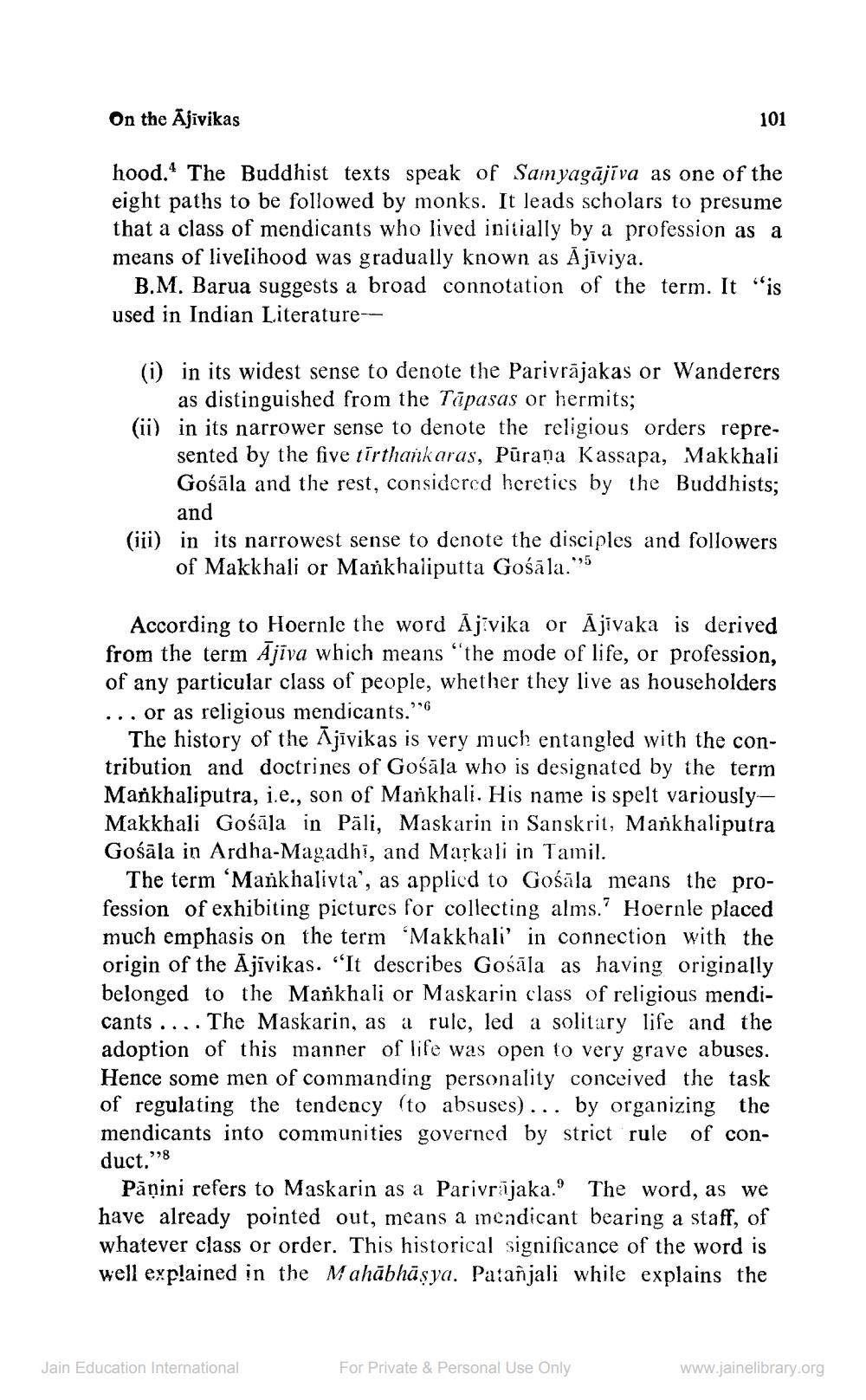________________
On the Ajivikas
101
hood. The Buddhist texts speak of Samyagājīva as one of the eight paths to be followed by monks. It leads scholars to presume that a class of mendicants who lived initially by a profession as a means of livelihood was gradually known as Ājiviya.
B.M. Barua suggests a broad connotation of the term. It is used in Indian Literature--
(i) in its widest sense to denote the Parivrājakas or Wanderers
as distinguished from the Tāpasas or hermits; (ii) in its narrower sense to denote the religious orders repre
sented by the five tirthankaras, Pūrana Kassapa, Makkhali Gośāla and the rest, considered heretics by the Buddhists;
and (iii) in its narrowest sense to denote the disciples and followers
of Makkhali or Mankhaliputta Gośāla."95
According to Hoernle the word Ājivika or Ājivaka is derived from the term Ājīva which means “the mode of life, or profession, of any particular class of people, whether they live as householders ... or as religious mendicants."
The history of the Ajīvikas is very much entangled with the contribution and doctrines of Gośāla who is designated by the terin Markhaliputra, i.e., son of Mankhali. His name is spelt variously, Makkhali Gośāla in Pāli, Maskarin in Sanskrit, Markhaliputra Gośāla in Ardha-Magadhi, and Markali in Tamil.
The term 'Mankhalivta', as applicd to Gośāla means the profession of exhibiting pictures for collecting alms.? Hoernle placed much emphasis on the term “Makkhali' in connection with the origin of the Ajivikas. “It describes Gośāla as having originally belonged to the Markhali or Maskarin class of religious mendicants ... The Maskarin, as a rule, led a solitary life and the adoption of this manner of life was open to very grave abuses. Hence some men of commanding personality conceived the task of regulating the tendency (to absuses)... by organizing the mendicants into communities governed by strict rule of conduct."8
Pāṇini refers to Maskarin as a Parivrījaka. The word, as we have already pointed out, means a mendicant bearing a staff, of whatever class or order. This historical significance of the word is well explained in the Mahābhāşya. Patanjali while explains the
Jain Education International
For Private & Personal Use Only
www.jainelibrary.org




